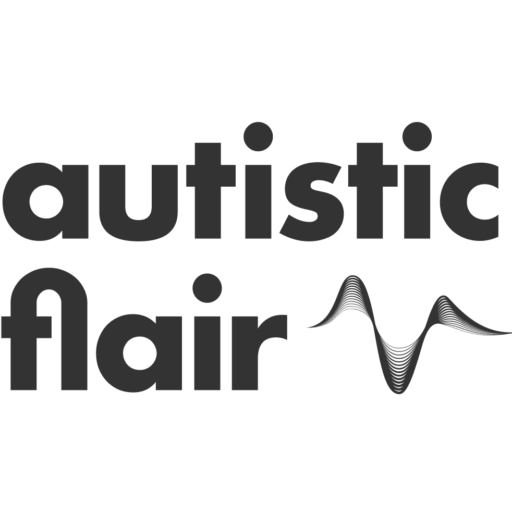Ask Autistic Advocates is an interview series that celebrates autism and how it enhances our lives.
Each week, a new interviewee gives readers a glimpse into what makes them, them, and how autism has helped shaped their lives. Today we’re getting to know, Sarah Duggan.
Tell us a bit about yourself
My name is Sarah, I’m 28, and I live in Birmingham, UK (where I am also originally from) with my partner. I have a bachelor’s degree in English Literature and I completed a Master’s in PR in 2020.
I love reading (particularly women’s writing), exercising, crafting, watching make-up tutorials on YouTube, spending time in nature, am a massive Beyonce fan, and have a bichon frise called Rosie. I am currently working on a chapter that will be published in an academic book this year about female entrepreneurship in the PR industry, which I am really excited about!
When and why did you start actively advocating?
I was only diagnosed austistic at the age of 24 and, outside of my close-knit family, people struggled to wrap their heads around how this was possible because, to all intents and purposes, I didn’t fit the stereotypical image of an Autistic person.
I made friends easily and had lots of them, I was considered to be very bright, had a degree, and had successfully lived away from home for 3 years during my time at university, and since graduating in 2014 I’ve worked pretty much continuously though in a few different jobs.
This lack of understanding really frustrated me, especially it feels, to me anyway, like the “neurotypical” world makes a feeble attempt, if any, to understand me. It works both ways, or at least it should, in my opinion. I felt super empowered when I received my diagnosis in 2017, but the euphoria I felt from pieces of me clicking together in my head lasted all but a minute, if that.
“I felt like I’d been waiting, with my breath held, all my life so far for this moment that I didn’t even know I needed and then when it happened, it was actually kind of desolating.”
I was signposted to the charity Autism West Midlands for support, as my psychiatrist explained she was told to do but she forewarned that I was so “high-functioning” their offering may not be of any benefit to me. I remember asking her ‘so what then? If AWM can’t do anything for me?’ and with her short, half-apologetic response of ‘I don’t know’ she may as well have thrown the jigsaw box out of the window in its entirety. It was all I could do to nod, smile politely, and thank her and that was, basically, that. I felt like I’d been waiting, with my breath held, all my life so far for this moment that I didn’t even know I needed and then when it happened, it was actually kind of desolating.
I quickly realised there is next to no provision for autistic adults, let alone on the NHS. Apart from the initial peer support-type group that I attended weekly for a couple of months at AWM, which I was grateful for but, ultimately, found underwhelming, I had to seek out and pay for support myself. This infuriates me to this day.
It was only during my Master’s studies last year that I had a game-changing breakthrough. Through my Disabled Students Allowance entitlement, I began having talking therapy-like sessions, once a week for an hour, with David, my ASD Specialist Mentor and Study Skills Tutor, and finally felt like someone truly understood me.
What do you love most about being autistic?
I feel every single little thing so deeply which, oftentimes, feels like a curse as I over-analyse everything to the point that it almost feels like uncontrollable mental self-harm.
In reality though, if I wasn’t so intensely emotional and hyper-sensitive, I doubt very much that I would have the immense capacity for love that I am blessed with. I am such a loving person that sometimes it kind of overwhelms me, but I would not change that about myself.
Related: Ask Autistic Advocates: Katie Forbes

What is the biggest challenge you’ve faced and how did you overcome it?
On a personal level, I’ve always found relationship breakups extremely challenging, particularly because my previous relationships broke down before I was diagnosed autistic and so I, unsurprisingly now, really struggled to process what was happening.
More professionally-speaking, last year I had to write a 12,000-word dissertation, at Master’s level, during the Coronavirus pandemic. This was even trickier because I had only moved out of the comfort of the home I’d grown up in and moved in with my boyfriend a couple of weeks before the UK went into our first lockdown, so my emotions were all over the place.
Relationship-wise, I am very fortunate that I am now in a great relationship with a loving partner who is both patient and supportive and with whom I feel I can be myself. In general, though, I have overcome these challenges by leaning into my support network of family, friends, mentors, and, at times, therapists.
What myth would you like to bust?
That Autistic people lack empathy!!!! From my personal experience, Autistic people can have just as much, if not more, empathy than “neurotypical” people, we just channel it differently!
If you could tell your younger self one thing, what would it be?
I constantly have to tell myself, even now, that I am enough, that I am worthy, that I am right where I should be, that I have everything already inside me that I need and however much I might seek perfection, there is no such thing as “perfect” and that’s ok!

